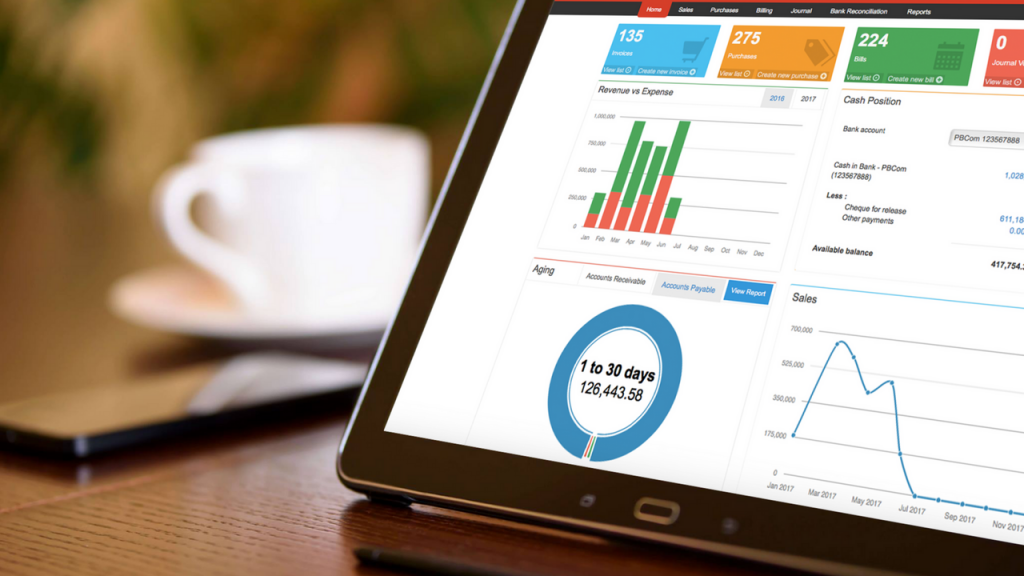Can you think of any business that didn’t rely on spreadsheets as they start up?
We’d bet you can’t. You see, spreadsheets have become so integral to every business that it’s the basis of a lot of financially related software we use these days.
In accounting, we all agree that spreadsheets are way much easier to use than the traditional accounting methods our ancestors taught us.
But it’s been almost four decades since the first spreadsheet, VisiCalc, was introduced to us, and don’t you think it’s time to put it to rest?
Here are the five reasons we have #
Spreadsheets can be complex #
There’s no undermining a spreadsheet’s power when it comes to tracking sales, purchases, inventories, and whatnot. In fact, if we know just the right commands and formulas, we can turn the simple spreadsheet into a mini-ERP.
However:
The more formulas and commands you add, the more complex it becomes. It becomes so complex that changing one cell may sabotage the rest of your sheets.
If you need to make adjustments to the entries, it may be hard for you to trace where the changes must be done or how it really works.
If you have a new person on board, it may also be a challenge explaining how to use your spreadsheet cum mini-ERP.
Also:
When your spreadsheet is complex, the file size is large. And we know what happens when we open large files on our low-powered computer, don’t we?
Spreadsheets need time to be learned #
As mentioned above, when spreadsheets are complex, learning how to manipulate it poses a big challenge.
It’s fine if you’re running a small business as you may have enough time to walk your new partners through it. But really, who’s got time for that?
As you add more clients, partners, and other users, using spreadsheets can also create more challenges. You need a replicable set of processes that are easy to follow and implement.
Again, spreadsheets may not be your best friend in this one thanks to its complexity.
Spreadsheets cannot be integrated #
Another challenge spreadsheets pose is integration. As your practice or client’s business grows, you may need more than one software to automate your processes.
The problem with your existing spreadsheet is you cannot integrate it with these new applications. At best, they will allow you to import some data if the file format is supported.
Sticking with spreadsheets also create problems if you have multiple clients. This means you have to maintain separate files at the same time.
Integrating these files with the others is simply out of the options.
Spreadsheet entries cannot be tracked #
Errors in accounting are not uncommon. Hence, it is crucial to be able to track what changes were done, when were they done, and, sometimes, who did it.
If you’re working with a partner or a client, tracking is even more necessary. Unfortunately, spreadsheets do not support the tracking feature. So in case you need to backtrack your entries, you may need a whole lot of luck.
Spreadsheet entries pose a challenge to real-time monitoring #
Crucial to your client’s business success is real-time monitoring of progress, specifically the financial one.
Spreadsheets, as we all know, takes more time to deliver that unless you’re using an online version such as the Google Sheets.
The challenge with Google Sheets, however, is the availability of all the commands and formula found in an offline version.
Setting it up to present financial health overview may also take some time (e.g. showing pies, charts, graphs, etc.).
What do you do then? #
Online accounting software. Spreadsheets are great and all, but they are just limited.
Cloud accounting is the answer if you want your client’s business to run smoothly. Take Oojeema, for example.
It’s a cloud-based accounting system that’s easy to use, supports multiple users, has an audit trail feature, and updates necessary reports in real time. Even BIR forms you need are automatically updated as you enter sales and purchase transactions
Simplify accounting today.






